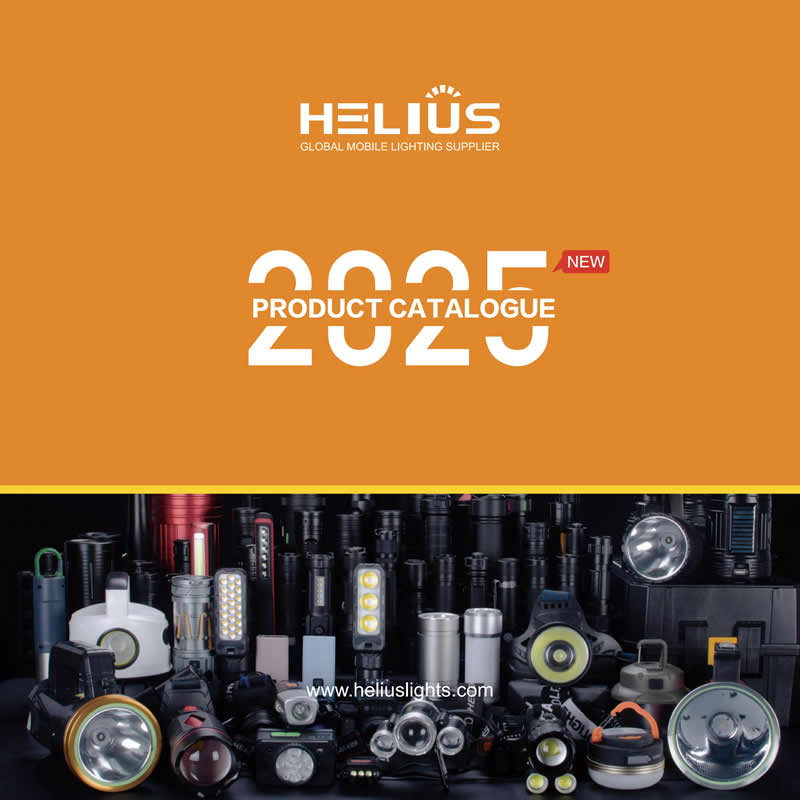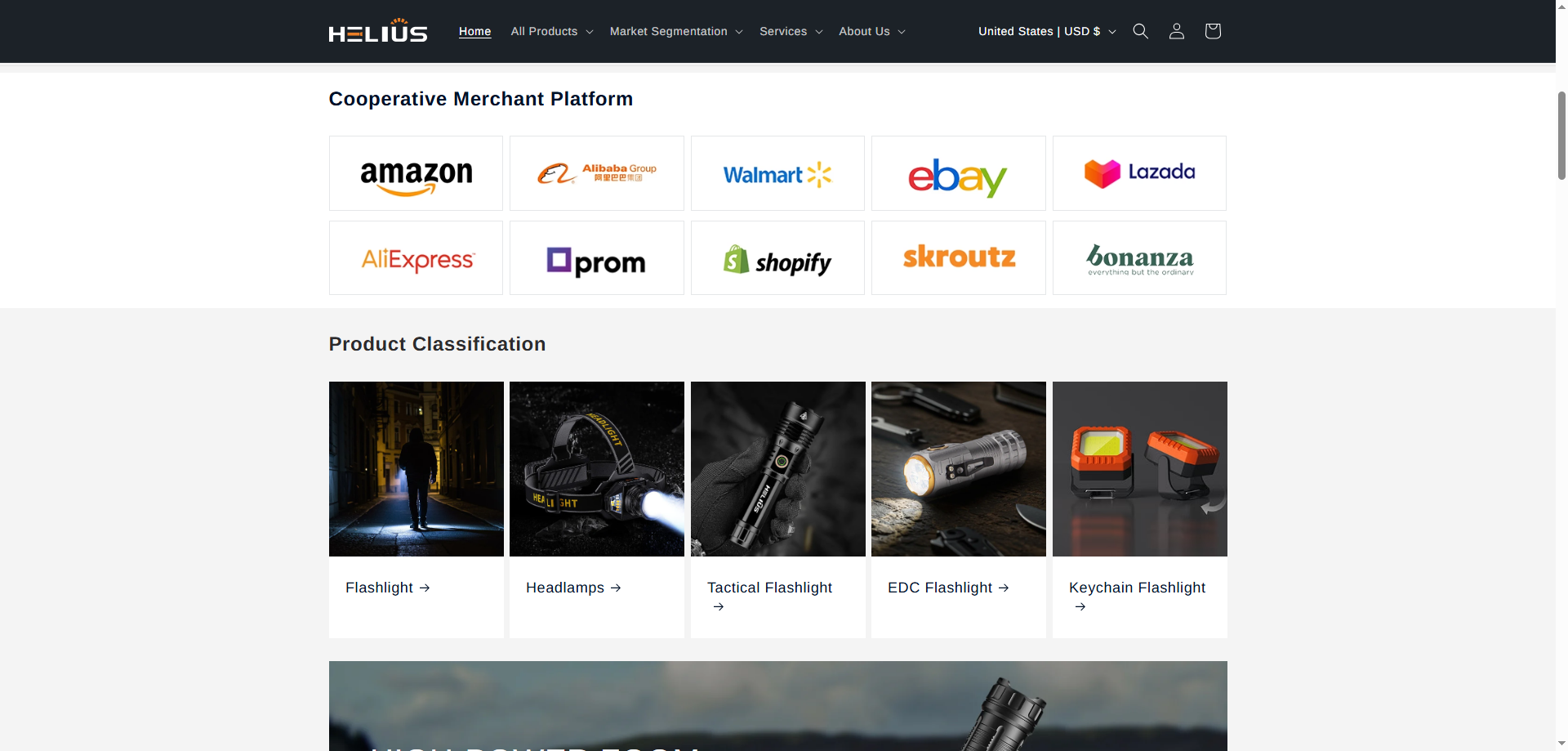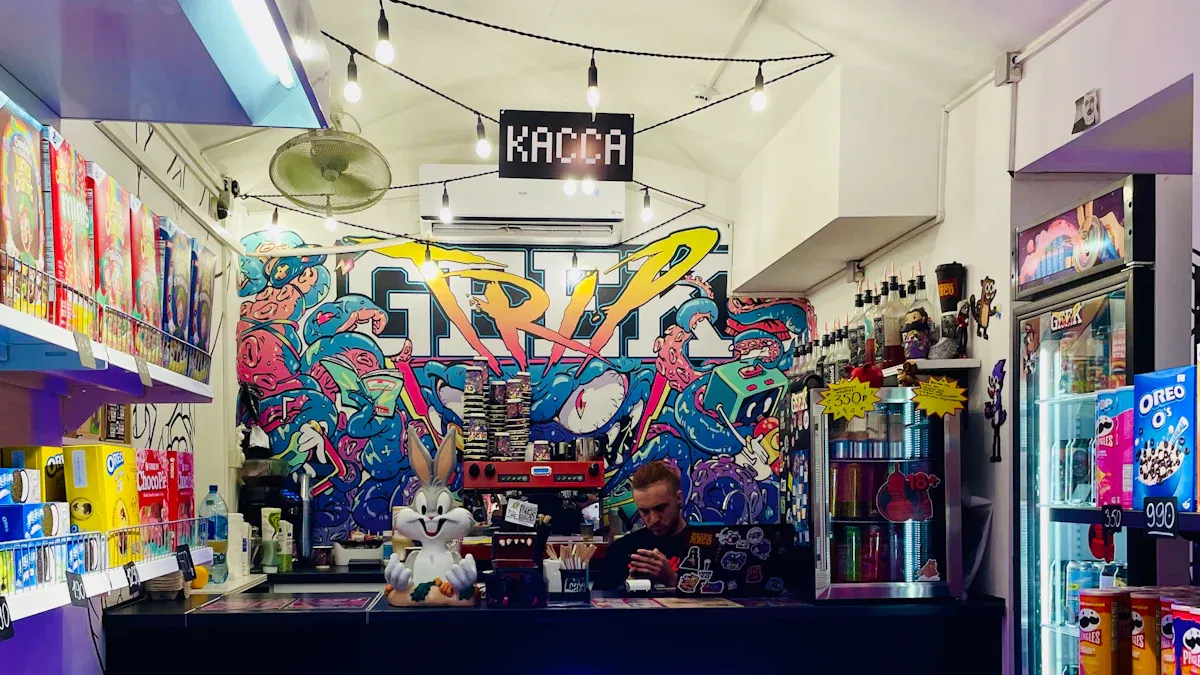Bulk Flashlights for Retail and Industrial Markets Which Sourcing Strategy Works Best

A purchasing manager has a problem. Stores want many types of bulk flashlights for their shelves. Industrial buyers need strong flashlights that work in hard places. The world flashlight market will be worth over USD 2 billion in 2025. This shows there is big demand in both areas. Sourcing is very important to meet these needs. Companies must pick products and sourcing methods for each market. Local sourcing, many product choices, and good suppliers help make good sourcing decisions.
Key Takeaways
Retail stores need many kinds of flashlights. They want bright packaging and flexible orders. This helps keep customers happy. It also helps stores follow new trends.
Industrial buyers want strong and tough flashlights. They look for special features and reliable suppliers. These flashlights must work well in hard jobs.
Local sourcing gives fast delivery and easy talks. It helps manage stock quickly. This is good for urgent or small orders.
Global sourcing gives more choices and lower prices. But it needs planning for longer shipping. It also needs quality checks.
Picking the right suppliers is important. Checking quality and managing inventory well saves money. It also keeps customers happy.
Market Needs Overview
Retail Sourcing Priorities
Retail stores have special problems when buying flashlights. They want shelves to look nice and meet what customers want. For flashlight retail, these things matter most:
Stores need many types of flashlights. They want different models, colors, and styles for all kinds of shoppers.
They pick suppliers who let them buy small or medium amounts. This helps them try new products and follow trends.
Flashlights should have bright packaging. Sometimes, the packaging is made just for the store’s brand.
Stores check quality to stop returns and keep a good name.
They like suppliers who can change orders fast and answer quickly.
Stores use software to watch sales and know when to order more. This keeps the right amount in stock.
They ask for deals or discounts on new products. They also want clear rules for returns.
Retail sourcing is about having many choices, nice packaging, easy ordering, and good supplier talks. These things help stores change fast and make customers happy.
Industrial Sourcing Priorities
Industrial buyers have different needs when buying flashlights. They want flashlights that work well in hard places. Their main needs are:
They pick strong and tactical flashlights for jobs like law enforcement, firefighting, and industry.
They care about flashlights that last, work well, and have special features. Some features are rechargeable batteries, magnetic bases, or bodies that glow in the dark.
They choose suppliers who have done well in industrial wholesale. This makes sure the flashlights always work.
They buy in bulk to always have enough and avoid running out.
They want quality checks and products that meet industry rules.
Industrial sourcing is about good performance, trust, and special features. These buyers want suppliers who know tough jobs and always give good products.
Bulk Flashlights Selection

Product Variety for Retail
Retail buyers do well when they sell many kinds of flashlights. Customers want different features, styles, and prices. Stores with lots of flashlights can get more shoppers and sell more. Some popular types in stores are:
Everyday carry flashlights for daily use
Tactical flashlights for security or outdoor activities
Keychain flashlights for convenience
Ultra-bright flashlights for high visibility
Industrial flashlights for tough jobs
Hunting flashlights for outdoor sports
Multi-colored flashlights for special uses
Bike lights for cyclists
The table below lists top bulk flashlights for stores:
Flashlight Type | Key Features | Bulk Order Details |
|---|---|---|
Aluminum Flashlights | Durable, many colors | From $3.54 each (100 units) |
USB Rechargeable LED Flashlights | Rechargeable, triple output | From $31.06 each (12 units) |
Telescopic Aluminum Flashlights w/ Magnet | Extendable, magnetic base | From $7.91 each (50 units) |
Rubberized Torch Lights with Strap | Rubber grip, easy to carry | From $3.08 each (100 units) |
Flashlight with Light-Up Pen | Multi-use, pen and light combo | From $1.25 each (250 units) |
Having many types helps stores meet what people want. It also makes customers happy and brings them back. Selling different flashlights in bulk lets stores have good prices and nice displays.
Performance for Industrial
Industrial buyers care most about how well flashlights work. They need flashlights that last and can handle hard jobs. Important features for these buyers are:
Durability: Flashlights made from strong materials like glass-filled nylon or PC-ABS resist impact and corrosion.
Water resistance: High IP ratings keep flashlights working in wet or humid conditions.
Power source options: Rechargeable batteries save money and support sustainability, while disposable batteries offer quick replacement.
Size and portability: Compact, lightweight designs with ergonomic grips help workers carry and use flashlights easily.
Tactical modes: Strobe, SOS, and turbo modes provide extra functions for emergencies or special tasks.
Adjustable focus: Switching between spot and flood beams lets users adapt to different jobs.
Multi-color options: Red and green lights help with night vision and special uses.
Cost-effectiveness: Buyers look for flashlights that balance price and long-term value, reducing the need for frequent replacements.
Industrial buyers pick flashlights that work well every day. They want products that meet tough rules and always do the job right.
Sourcing Strategies
Local Sourcing Benefits
Local sourcing gives many good things to businesses buying lots of flashlights. Companies pick local suppliers to get products faster and manage stock better. When suppliers are close, stores get flashlights quickly. This helps stores and factories keep shelves full and meet quick needs. Talking with local suppliers is easier. Buyers can visit, check quality, and fix problems fast.
Tip: Local sourcing helps the local economy and cuts down on pollution from shipping.
Shorter trips mean lower shipping costs and fewer delays. Businesses use trucks or vans for fast delivery. This helps them keep just enough flashlights in stock. Companies can order small amounts more often. This means they do not need big storage spaces. Good relationships with local suppliers help buyers handle changes in demand. If a store needs more flashlights fast, a local supplier can help right away.
Local sourcing has some downsides. Local suppliers might have fewer choices or higher costs. Still, many businesses think the good things—like fast delivery, easy talks, and steady service—are worth it. For rush orders or special needs, local sourcing is often the best choice.
Global Sourcing Pros and Cons
Global sourcing lets businesses find more suppliers and products. Many companies use global sourcing to get special products and save money. Suppliers from other countries often sell bulk flashlights at lower prices. This is good for companies that need lots of flashlights or special types not found nearby.
Global sourcing gives:
More suppliers with better skills.
Lower costs for making and buying.
Better deals for buying in bulk.
But global sourcing has problems too. Shipping takes longer from far away. Businesses must plan ahead so they do not run out. Customs and taxes can make things cost more. Talking to overseas suppliers can be hard because of language and culture. Checking quality is harder when suppliers are far away.
Common problems are:
Delays from shipping and customs.
Higher shipping and tax costs.
Possible problems with quality.
Many companies use both local and global suppliers. They use local ones for quick or small orders. They use global ones for big or special orders. This helps balance cost, quality, and ease. It also lowers risk by having more than one supplier.
Businesses need to match their sourcing to what they need and want. For example, stores with fast-changing trends may pick local sourcing for quick restocks. Factories needing lots of flashlights or special features may pick global sourcing for better prices and more choices. Companies look at how much they order, their budget, delivery time, and if suppliers are reliable before choosing.
Note: The best sourcing plan depends on order size, how often you order, your budget, and if you need fast delivery or special products.
By thinking about these things, businesses can make plans that work for them and help them grow.
Bulk Purchasing Considerations
Cost Factors
When companies buy lots of flashlights, they must think about many costs. The price per flashlight is not the only thing to look at. Shipping, packaging, and if the supplier is reliable also matter. All these things can change the total price and what you get for your money.
The table below shows the main cost factors for buying flashlights in bulk:
Cost Factor | Impact on Bulk Flashlight Purchasing Decisions |
|---|---|
Minimum Order Quantity (MOQ) & Pricing | MOQ means the smallest number you must buy. This changes how much you pay at first and the price for each flashlight. Buying more at once makes each one cheaper, but you need more space to store them. Talking with suppliers about MOQ can help save money. |
Shipping and Logistics | Shipping by sea is slow but costs less. Air shipping is much faster but costs a lot more. Picking the best way helps balance cost and speed. |
Packaging Costs | Packaging keeps flashlights safe during shipping. It also helps with branding and meeting shipping rules. Too much packaging costs more for no reason. Good packaging saves space and money. |
Supplier Reliability | Good suppliers send products on time and keep quality high. This lowers the chance of problems and extra costs. Working well with suppliers can help you get better prices. |
Buying in bulk often saves money because you pay less for each flashlight. But you might have to pay more for storage if you buy too many. Suppliers may give better deals for bigger orders, but you should check if you really need that many.
Packaging is important for saving money. Good packaging keeps flashlights from breaking during shipping. It stops returns and saves money. Nice packaging also makes your brand look better and follows shipping rules. Too much packaging costs more and does not help. Simple packaging keeps flashlights safe and saves on shipping.
Tip: If you work well with suppliers, you can get better prices and deals. This helps save money over time.
Inventory and Delivery
It is very important to manage inventory and delivery well when buying in bulk. Companies need enough flashlights to sell but should not buy too many. Too much stock uses up money and space. Good suppliers help by sending products on time and changing orders when needed.
How fast you get your order depends on how it ships. Air shipping is quick but costs a lot. Sea shipping is cheaper but takes longer. Companies must pick the best way for their needs and budget. If you need flashlights fast, use air shipping. For normal orders, sea shipping saves money.
Inventory systems help companies know how many flashlights they have. These tools tell you when to order more. They stop you from running out or having too many. Local suppliers can deliver faster and let you order smaller amounts. This helps you keep just enough stock and saves money.
Main ideas for inventory and delivery:
Always have enough flashlights for customers.
Pick suppliers who deliver on time and talk clearly.
Use tools to track and plan your stock.
Choose the best shipping for each order.
Work with suppliers who can change orders fast.
Bulk buying works best when your inventory and delivery plans match your business goals. By picking good suppliers and smart shipping, you save money and keep customers happy.
Flashlight Wholesale for Retail vs. Industrial

Supplier Selection
Picking the right suppliers is very important for selling flashlights in stores and factories. Retail buyers want suppliers who have many kinds of flashlights. They like new styles and want to order small or medium amounts. Industrial buyers care more about strong flashlights that last a long time. They also want help with technical problems and want the same good quality every time. The table below shows how retail and industrial buyers are different when they buy flashlights:
Aspect | Retail Flashlight Buyers | Industrial Flashlight Buyers |
|---|---|---|
Order Size | Smaller initial orders to test market demand | Large bulk orders for uniformity and cost savings |
Product Variety | Wide variety, trendy designs, attractive packaging | Focus on durability, consistent quality, and technical specs |
Pricing Strategy | Discounts on smaller orders, leverage market trends | Fixed contracts, long-term cost efficiency |
Supplier Relations | Multiple suppliers, emphasis on new product access and flexibility | Long-term relationships, technical support, reliability |
Quality & Standards | Basic quality checks, safety labels for consumer trust | Rigorous testing, certifications (UL, CE) |
Inventory Management | Responsive to sales trends, avoid overstocking | Maintain steady supply for shifts and emergencies |
Customization | Branding and special packaging to attract customers | Special certifications and features for work requirements |
Technical Features | User-friendly features, rechargeable batteries | High lumen output, rugged construction, reliability |
When picking suppliers, businesses look at many things. They check if the supplier knows about bulk flashlights and what is popular. They want suppliers who can deliver on time and help manage stock. It is good if suppliers can change order sizes when needed. Companies want suppliers who follow rules and have the right certificates. They look for flashlights that last and have good batteries. Businesses read reviews and ask for feedback from other customers. They want fair prices and no hidden costs. Safe shipping and strong packaging are important too. Good inventory systems and flexible delivery times help a lot. Long-term deals make sure there are always enough flashlights. Stores and factories like having many choices and ways to make products special. They also want suppliers who know about new technology. Testing samples before big orders helps avoid problems. Checking for extra fees is important.
These steps help companies find the best suppliers for their flashlight needs.
Risk Management
Risk management helps companies avoid problems when buying flashlights in bulk. Retail buyers worry about new trends, having too many flashlights, or bad suppliers. They use more than one supplier and keep less stock to stay ready for changes. Industrial buyers need strong flashlights all the time. They work with trusted suppliers for a long time and check quality often.
Tip: Check how well suppliers do their job and ask for samples to stop problems before they start.
Both retail and industrial buyers need clear rules and prices in their deals. Talking often with suppliers helps stop mistakes. Watching stock and delivery times keeps shelves full. By picking good suppliers and being careful, companies can stop big problems and keep working well.
Quality and Compliance
Standards and Certifications
Suppliers must follow strict rules for bulk flashlights. Both retail and industrial buyers want high quality every time. The ANSI/NEMA FL 1 standard is important for retail flashlights. It checks things like brightness, battery life, and water resistance. This helps buyers compare flashlights and makes sure suppliers keep quality the same.
Industrial buyers need even tougher rules. Suppliers must give flashlights that pass Class 2 Division 1 certification for dangerous places. ATEX and IECEx certifications mean a flashlight is safe in places with explosions. These certificates help suppliers sell in more countries. Industrial buyers also want flashlights that can handle chemicals, water, and hard hits. They look for flashlights that are easy to hold, last long, and have adjustable focus.
Suppliers who want to sell in India need BIS certification under IS 2083:2024. The table below gives the main facts:
Aspect | Details |
|---|---|
Mandatory Certification | BIS certification under IS 2083:2024 is required for legal manufacture, import, sale, or distribution in India. |
Regulatory Authority | Ministry of Commerce and Industry (India) |
Compliance Deadlines | General enterprises: 6 months; Small enterprises: 9 months; Micro enterprises: 12 months |
Exemptions | Export-only products; limited R&D imports (max 50 units/year, non-commercial) |
Certification Benefits | Legal market access, brand credibility, consumer safety assurance |
Certification Process Steps | 1. Preparation of documentation |
Testing Parameters | Brightness, battery safety, water ingress protection, mechanical durability, switch and electrical safety |
Suppliers who meet these rules earn trust and show they care about quality.
Returns and Defects
Handling returns and defects is very important for suppliers and buyers. Good quality means fewer returns, but problems can still happen. Stores want suppliers to have clear return rules and fix problems fast. Fast help keeps customers happy and protects the store’s good name.
Industrial buyers want even better quality. They need flashlights with no defects for important jobs. Suppliers must watch defect rates and solve problems quickly. Many suppliers give warranties or replace broken flashlights to show they trust their own products.
Tip: Suppliers who check quality often have fewer returns and better business.
Suppliers who handle returns well keep buyers coming back. They use feedback to make flashlights better and stop future problems. In both retail and industrial markets, suppliers who focus on quality and rules do better than others.
Sourcing Strategy Alignment
Retail Business Goals
Retail stores want to meet their main goals. They need full shelves, lots of choices, and happy customers. Sourcing starts by knowing what the store needs. Teams study the market and see what shoppers like. They search for suppliers with many flashlight types. These suppliers must deliver on time and keep quality good.
Retailers use sourcing to save money. They talk to suppliers for better prices and to keep profits up. Long-term deals with suppliers help avoid problems if there are delays. Local sourcing helps stores get products faster and follow trends. It also helps the local economy and cuts down on shipping pollution.
Retailers follow these steps to match sourcing with their goals:
Check what they need and study the market.
Make sure suppliers are good and can be trusted.
Try out products before buying a lot.
Make deals for better prices.
Plan inventory to avoid running out or having too much.
Build strong supplier ties for steady supply.
Retailers also use special knowledge to make better choices. They want suppliers who bring new ideas and help them stand out. Working with creative suppliers lets stores sell unique flashlights and get more customers.
Tip: Local sourcing helps stores launch new products fast and build trust with customers.
Industrial Business Goals
Industrial buyers want sourcing that meets tough rules. They need flashlights that last, work in hard places, and follow safety rules. Sourcing for industry starts with picking the right materials. Buyers pick suppliers who offer strong and reliable products.
Industrial sourcing plans include:
Checking suppliers for their market share and risk.
Using RFIs, RFPs, and RFQs to say what they need.
Picking suppliers by cost, quality, and support.
Making contracts and setting clear rules for suppliers.
Checking how suppliers do to find ways to get better.
Using digital tools to track costs and spot risks.
Industrial buyers want suppliers who give warranties and good support. They look for flashlights with waterproofing and strong batteries. Long-term supplier deals help lower costs and reduce risk. Buyers use data to make choices and keep things running well.
Note: Good sourcing helps industrial buyers stay ahead and meet customer needs.
The best way to buy bulk flashlights depends on your market, what products you need, and your business goals. Companies do well with one-stop suppliers who have many flashlight choices. These suppliers check quality at each step and offer branding. Good materials, packaging, and service help people trust the company and lower returns. Checking quality, having certifications, and reading supplier reviews keep standards high. Strong packaging and good shipping keep flashlights safe and make sure they arrive in good shape. Helpful support and strong warranties make things better for buyers. Companies should check their suppliers, try new ways, and always focus on quality to get better results.
FAQ
What is the best way to choose a bulk flashlight supplier?
Buyers should look at how much experience the supplier has. They need to see what kinds of flashlights the supplier sells. Fast delivery is important too. Buyers should ask for samples to test. They should check if the supplier has the right certifications. Good suppliers talk clearly and let you order different amounts.
How can a business reduce the risk of defective flashlights?
A company should ask for samples before buying a lot. They need to check if the supplier tests their products. Looking at certifications helps make sure the flashlights are good. Regular checks and clear return rules help stop problems. Good suppliers give warranties and help quickly if there is a problem.
Why does local sourcing benefit retail stores?
Local sourcing means stores get flashlights faster. It is easier to talk to local suppliers. Stores can get more flashlights quickly when they need them. Local suppliers let stores order small or big amounts. This helps save money on shipping.
What certifications matter for industrial flashlight sourcing?
Industrial buyers want flashlights with ANSI, UL, ATEX, and IECEx certifications. These show the flashlights are safe and work well. Certified flashlights are good for hard jobs and follow the law.
See Also
How To Select The Ideal Flashlight For Daily Use
Explore Various Flashlight Styles And Their Unique Features
Complete Guide To Picking The Best Flashlight For Home
Selecting The Best Everyday Carry Flashlight For Holiday Gifts
